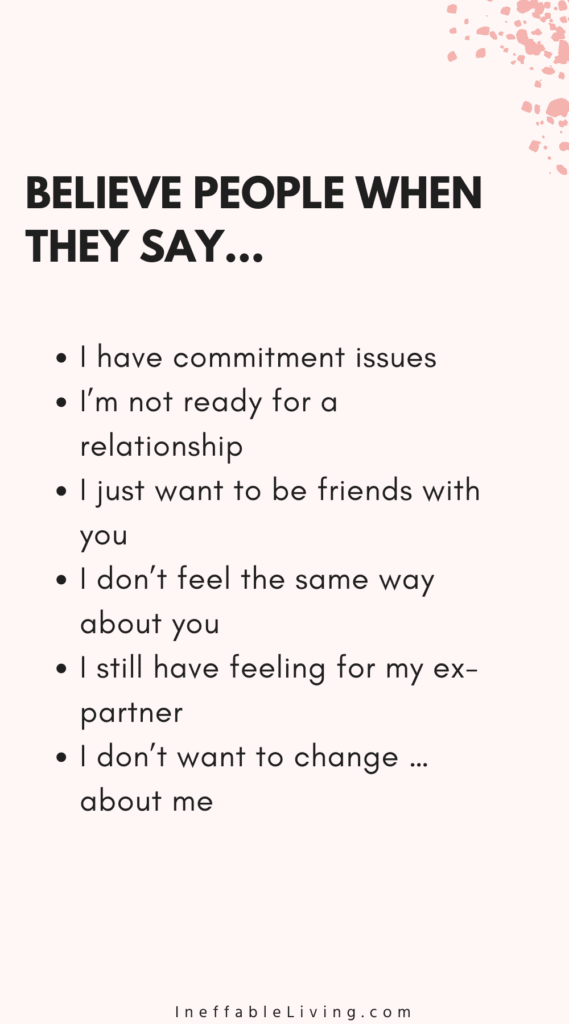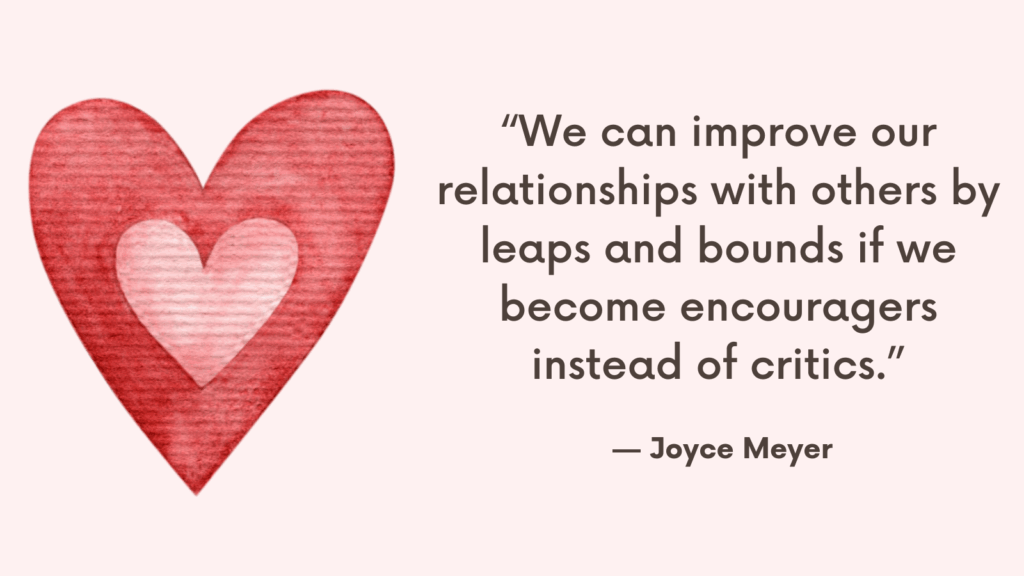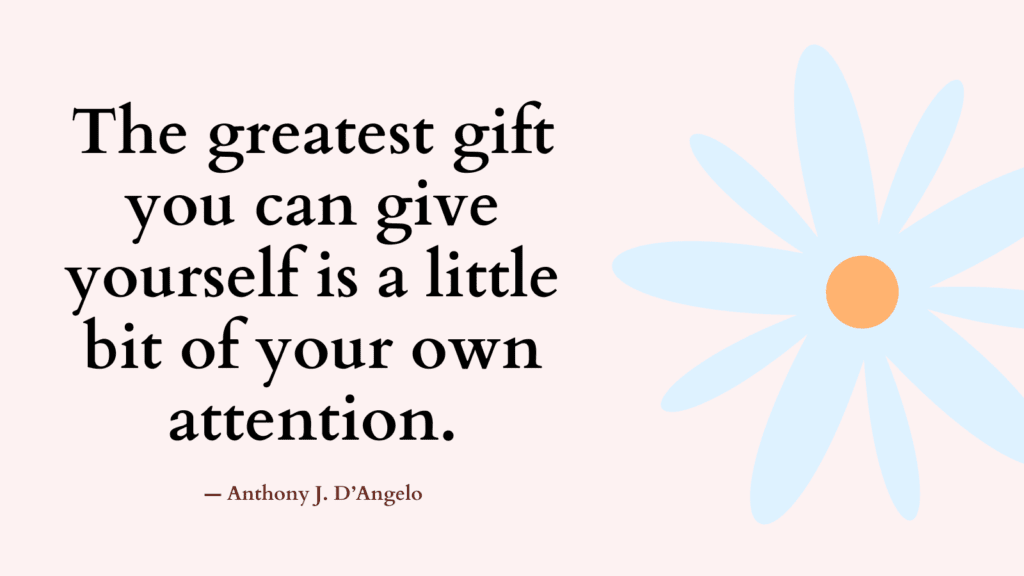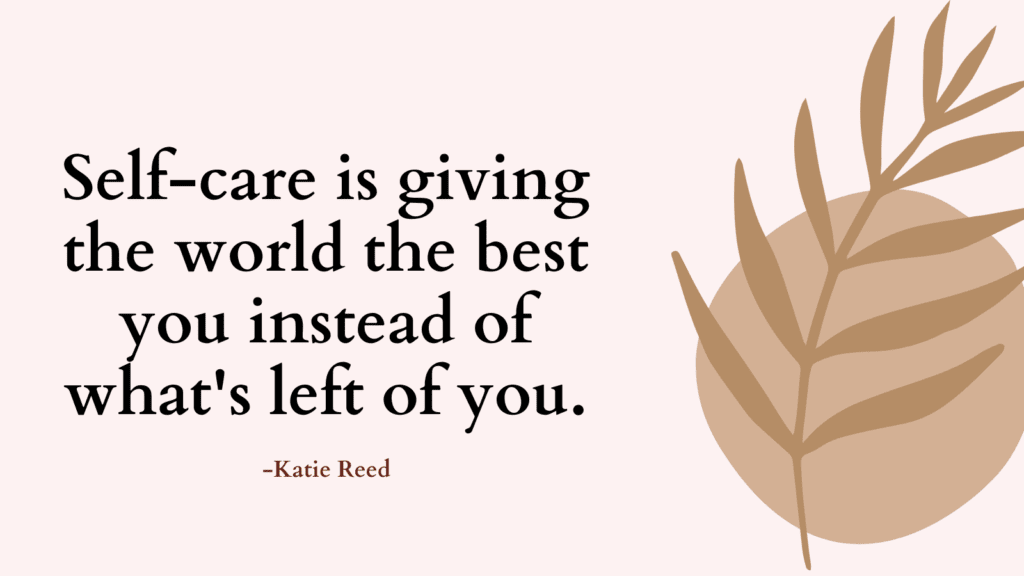This post contains relationship anxiety test to help you identify if you have relationship anxiety or if it’s a gut feeling.
What Is Relationship Anxiety?
Relationship anxiety occurs when your mind deems love, relationships, and commitment dangerous.
It would then find ways to warn you of all the things that can go wrong and all the downsides of your relationships.
You may find yourself questioning your love, wondering if your partner’s love is enough, or whether committing to them would be a huge mistake.
What Is Relationship OCD (ROCD)?
ROCD is the fear of being in the wrong relationship, fear of not being truly loved by one’s partner, or fear of not truly loving one’s partner.
Relationship OCD is not an official diagnosis and is not included in the fifth edition of the Diagnostic and Statistical Manual (DSM-V) since all types of OCD are part of the obsessive-compulsive spectrum.
If you don’t suffer from OCD, you may choose to use the term relationship anxiety instead.
Whatever term you choose to use, the treatment of relationship anxiety and ROCD is the same.
Relationship Anxiety Test: Relationship Anxiety Or Gut Feeling?
Results
#1. Do you constantly look for evidence that your partner loves you?
#2. Do you feel like you need to remind yourself again and again why you love your partner?
#3. Do you continuously ask your partner whether they really love you?
#4. Do you often feel like things in the relationship are “too good to be true” and are waiting for something to go wrong?
#5. Do you often find yourself comparing your relationship to others?
#6. Do you often worry that your partner may want to break up even in the absence of any evidence that they’re thinking of such thing?
#7. Are you constantly over-analyzing their words and actions?
#8. Do you often feel the need to cling to your partner out of fear that they will leave you?
#9. Do you hide any opinions, preferences, or needs out of fear that it will contradict your partner?
#10. Are you in general overly accommodating to your partner at the expense of your own needs?
Note: This test is not meant to act as a substitute for proper assessment.
Results
The questions above represent common signs of relationship anxiety. If you answered yes to most of these questions, then you might be dealing with relationship anxiety.
If you suspect you might have relationship anxiety, consider seeing a therapist to help you figure out how best to manage your anxiety.
What Causes Relationship Anxiety?
There are many things that can cause relationship anxiety, including:
1. Past experiences: if you have had negative experiences in past relationships, you may be more likely to experience anxiety in your current relationship.
2. Trust issues: if you have been betrayed or hurt in the past, it can be difficult to trust someone new.
3. Fear of abandonment: if you have a fear of being abandoned or left alone, you may experience anxiety in your relationship.
4. Insecurity: if you feel insecure about yourself or your partner’s feelings for you, you may experience anxiety.
5. Communication issues: if you and your partner struggle to communicate effectively, it can lead to misunderstandings and anxiety.
How To Deal With Relationship Anxiety?
Dealing with relationship anxiety can be challenging, but there are several strategies you can implement to manage and overcome it. Here are some suggestions:
1. Recognize and Understand Your Triggers
Start by identifying the specific thoughts, situations, or behaviors that trigger your relationship anxiety.
These triggers may vary from person to person but could include fear of abandonment, excessive worry about the future, or feelings of inadequacy.
By understanding your triggers, you can develop a plan to address them more effectively.
2. Practice Mindfulness
Mindfulness involves being fully present in the moment without judgment.
Engaging in mindfulness exercises, such as meditation or deep breathing, can help you become more aware of your anxious thoughts and sensations.
By practicing mindfulness regularly, you can learn to observe and accept these thoughts without letting them overwhelm you.
This can enhance your ability to stay grounded and focused in your relationships.
Related: Best 8 Mindfulness Exercises For Adults That Will Help You Regulate Your Emotions
3. Challenge Negative Thoughts
Relationship anxiety often stems from negative thoughts and self-doubt.
Practice challenging these thoughts by examining the evidence for and against them.
Ask yourself if there is any real basis for your anxieties or if they are rooted in irrational fears.
Consider alternative perspectives and more realistic interpretations of the situation.
This cognitive restructuring can help you develop a more balanced and accurate view of your relationships.
4. Communicate Openly and Honestly
A lack of communication can fuel relationship anxiety.
Share your concerns, fears, and insecurities with your partner in an open and honest manner.
Effective communication helps build trust and understanding, allowing both partners to support each other.
It also provides an opportunity to address any misunderstandings or assumptions that may be contributing to your anxiety.
Related: How To Validate Someone’s Feelings Without Agreeing? (+Examples of Validating Statements)
5. Set Realistic Expectations
Unrealistic expectations can place unnecessary pressure on your relationships.
Recognize that no relationship is perfect, and it is normal to have ups and downs.
Avoid comparing your relationship to others or idealized versions portrayed in media.
Instead, focus on building a healthy and nurturing relationship by setting realistic expectations and working towards mutual growth and happiness.
6. Foster Self-Care
Prioritize self-care practices that promote overall well-being.
Engage in activities that bring you joy, reduce stress, and boost your self-esteem.
This might include exercise, spending time with loved ones, pursuing hobbies, or seeking professional help, if needed.
Taking care of yourself physically, emotionally, and mentally can provide a solid foundation for healthier relationships.
Related: 35 Self Care Saturday Ideas To Try This Weekend
7. Embrace Uncertainty
Lastly, remember that uncertainty is a natural part of relationships.
Accept that you cannot control or predict every outcome.
Embracing uncertainty allows for personal growth, increased flexibility, and the development of resilience within your relationships.
It’s important to note that these suggestions may not work for everyone, and it’s crucial to tailor them to your specific needs and circumstances.
Related: Is It ROCD Or Am I Not In Love? Top 4 Powerful Ways to Overcome Relationship Anxiety And ROCD
Conclusion
Managing relationship anxiety takes time and effort, so be patient with yourself.
With the right tools and support, you can learn to overcome your anxiety and have a fulfilling relationship.
FAQ
What causes relationship anxiety?
There are several factors that can contribute to the development of relationship anxiety.
These include past traumas, attachment issues, low self-esteem, fear of abandonment, negative relationship experiences, or a combination of these.
People who have experienced unhealthy or abusive relationships in the past may find it particularly challenging to trust and feel secure in new relationships.
Additionally, individuals with anxious attachment styles, characterized by a fear of rejection and abandonment, may be more prone to experiencing relationship anxiety.
Related: Best 7 Books On Detachment
Can relationship anxiety ruin a relationship?
Untreated relationship anxiety can certainly strain or damage a relationship.
It often involves excessive worry, fear, and insecurity, which can lead to frequent conflicts, overthinking, mistrust, or constant reassurance seeking.
This can create a negative cycle that erodes the foundation of a healthy relationship.
However, it’s important to note that with proper awareness and management, relationship anxiety can be effectively addressed, and relationships can thrive.
Can relationship anxiety be prevented?
While it may not always be possible to prevent relationship anxiety entirely, there are steps individuals can take to reduce its likelihood or manage it effectively.
Developing healthy coping mechanisms, addressing past traumas through therapy, practicing self-care, cultivating self-esteem, and fostering open and honest communication with your partner can significantly decrease the risk of developing relationship anxiety.
Related: Rational Detachment – What Is It and How to Cultivate it
Can relationship anxiety be outgrown?
With self-awareness, personal growth, effective coping strategies, and possibly therapy, relationship anxiety can be managed and its impact reduced significantly.
Many individuals find that as they work on themselves and address their underlying fears and insecurities, relationship anxiety diminishes over time.
However, it’s essential to remember that this process may differ for each person, and seeking professional help can accelerate progress and provide additional support.
Does relationship anxiety get worse over time?
Relationship anxiety can potentially worsen over time if left unaddressed.
It is important to remember that relationship anxiety is often rooted in deep-seated fears and insecurities.
When these fears are not effectively managed, they can intensify and become more ingrained in our thought patterns and behaviors.
Additionally, unresolved conflicts, repeated negative experiences, or a lack of effective communication within the relationship can contribute to the escalation of relationship anxiety.
However, with proper intervention and support, individuals can work towards reducing and managing relationship anxiety, preventing it from worsening over time.
Related: Top 7-Day Acceptance Challenge For A Peaceful Life
Can long-distance relationships worsen relationship anxiety?
Long-distance relationships can sometimes exacerbate existing relationship anxiety.
The physical distance between partners can create feelings of uncertainty, insecurity, and fear of abandonment.
The lack of regular face-to-face interaction may also trigger insecurities and doubts about the strength and longevity of the relationship.
However, it is important to note that not all long-distance relationships lead to increased relationship anxiety.
Open communication, trust-building exercises, and establishing realistic expectations can help mitigate anxiety in long-distance relationships.
Can self-esteem impact relationship anxiety?
Absolutely! Self-esteem plays a significant role in relationship anxiety. Individuals with low self-esteem tend to have more doubts about their worthiness and fear rejection or abandonment.
These insecurities can translate into relationship anxiety, as individuals may constantly question their partner’s feelings or worry about not being good enough.
Building healthy self-esteem through self-care, therapy, self-reflection, and positive affirmations can positively influence one’s ability to manage and reduce relationship anxiety.
Related: Circle of Control (+FREE Worksheet Download PDF)
Can jealousy be related to relationship anxiety?
Jealousy and relationship anxiety often go hand in hand.
Jealousy can stem from trust issues, insecurities, and fear of losing one’s partner.
With relationship anxiety, individuals may experience intrusive thoughts, excessive worrying, and vigilance about potential threats to the relationship.
These concerns can manifest as jealousy, resulting in unhealthy behavior such as possessiveness, constant questioning, or mistrust.
Addressing and managing relationship anxiety can help alleviate jealousy, promoting healthier and more secure romantic connections.
Can social media contribute to relationship anxiety?
Yes, social media can contribute to relationship anxiety.
The comparative nature of social media platforms, where individuals often present the highlight reels of their lives, can create unrealistic expectations and comparisons within relationships.
Seeing others’ seemingly perfect relationships and filtered images can lead to feelings of inadequacy, insecurity, and fear of not measuring up.
Additionally, the constant exposure to information about ex-partners or potential romantic interests can trigger jealousy and doubts about one’s own relationship.
It is important for individuals to be mindful of how they consume social media and work on establishing realistic perspectives and boundaries to mitigate the impact of social media on their relationship anxiety.
Related: Fear of Engulfment: What It Is & How to Overcome It
Can relationship anxiety be a sign of an unhealthy relationship?
Relationship anxiety can sometimes indicate underlying issues within a relationship.
While it is normal to experience occasional concerns or doubts in any relationship, excessive and persistent anxiety can be a sign of deeper problems.
Unhealthy dynamics such as lack of trust, poor communication, disrespect, or emotional manipulation can contribute to relationship anxiety.
If the anxiety is consistently triggered by negative interactions, consistent feelings of fear or distress, or a sense of being trapped or controlled within the relationship, it may serve as an indicator that the relationship is unhealthy and requires exploration and possible intervention.
Can relationship anxiety be a sign of deeper mental health concerns?
Relationship anxiety can sometimes coexist with or be a symptom of deeper mental health concerns.
Anxiety disorders, such as generalized anxiety disorder or attachment-related anxiety, can underlie relationship anxiety.
Additionally, individuals with a history of trauma or insecure attachment may be more prone to experiencing relationship anxiety.
It is important to consider the broader context of an individual’s mental health and well-being when addressing relationship anxiety.
Related: Do We Need Couples Therapy Quiz
Can relationship anxiety cause a fear of commitment?
Yes, relationship anxiety can cause a fear of commitment.
Individuals with relationship anxiety may have deep-rooted fears of vulnerability, abandonment, or intimacy, which can make the idea of committing to a long-term partnership intimidating or overwhelming.
These fears may stem from past experiences, attachment styles, or unresolved emotional conflicts.
Relationship anxiety can manifest as a reluctance to fully invest in a relationship, keeping emotional distance, or seeking reassurance and validation repeatedly.
Addressing and managing relationship anxiety can help individuals work through their fear of commitment and develop healthier attitudes towards intimacy and long-term partnerships.
FREE Relationship Anxiety Worksheets

References
- Anxiety Disorders and Intimate Relationships: A Study of Daily Processes in Couples – PMC (nih.gov)
- Relationship anxiety: Signs, causes, and management (medicalnewstoday.com)
- Relationship Anxiety Is Hard On The Immune System, Study Says – Association for Psychological Science – APS
- Anxious Attachment: How to Know If You Have It and What to Do About It (webmd.com)
- What Is Anxious Attachment? Dating Habits, Triggers & More | mindbodygreen
- Anxious Attachment: Signs in Children and Adults, Causes, and More (healthline.com)







